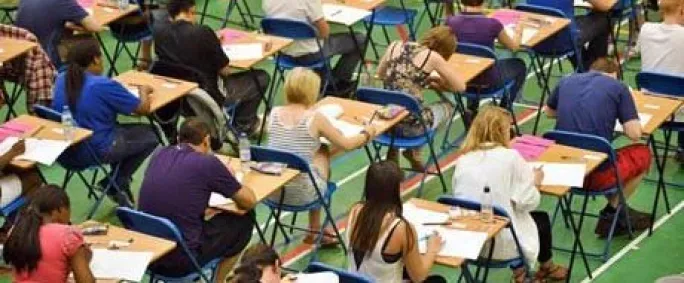Abolishing GCSE coursework is ‘dumbing down’ citizenship, teachers claim
Coursework is to be abolished or reduced in reformed GCSEs and A-levels under plans announced by Ofqual today, which some teachers say amount to “dumbing down”.
The exam regulator’s proposals follow ministers’ insistence that reformed school qualifications should revert to largely end-of-course exams.
There have been growing fears about teachers cheating in coursework, and its most widespread current form, controlled assessment, has become increasingly controversial because of the amount of classroom time it uses up.
But teachers said it was the coursework making up 60 per cent of the existing citizenship studies GCSE that was responsible for the subject’s growth and popularity. Ofqual’s plan to completely remove coursework from the qualification would reduce it “from a Jaguar to a 2CV”, according to the Association for Citizenship Teaching (ACT).
The regulator also wants to reduce coursework in drama where it currently makes up to 100 per cent of GCSE and AS-levels, and as much as 70 per cent of A-levels. New qualifications in the subject will involve non-exam assessment being restricted to 60 per cent of marks. Ofqual has also proposed that coursework should drop from 60 to 50 per cent in a new design and technology GCSE.
Chief regulator Glenys Stacey said: “We want students’ achievements to be assessed well. Current GCSE, AS- and A-level assessment arrangements sometimes fall short.”
But Chris Waller, ACT professional officer, said: “It is the [coursework] element that makes citizenship so exciting, so vibrant. It inspires young people to want to do this.
“Citizenship was the fastest growing GCSE last decade and rose very rapidly from no candidates in 2006 to 100,000 in 2009. That is remarkable and it was the coursework that really brought it alive.”
At present, pupils have to start a campaign for their coursework. “It might be around something in their school - about student behaviour or the use of mobile phones,” Mr Waller said. “Or it might be about something in their community like trying to reduce graffiti. These are very real and meaningful activities for young people.”
He acknowledged that teachers sometimes found them difficult to assess but said it was possible. Such activities will remain part of the new GCSE but will not be assessed as coursework under Ofqual’s plans.
The watchdog said this would risk “devaluing” pupils’ practical experiences, limiting them to ones that are likely to achieve high marks. Instead it is proposing that 15 per cent of marks in the final exam in the new GCSE should be allocated to knowledge and skills gained through such activities.
“They have gone for the easy option,” Mr Waller said. “Why change something because it was difficult? Why not find solutions? Why dumb it down?”
Proposed outlines of the content for the new qualifications - to be taught in schools from 2016 - were also unveiled today by the Department for Education.
They include a new GCSE in cooking and nutrition in which half the assessment will not be exam-based. Pupils will have to demonstrate techniques including knife skills and making sauces, and will be expected to study British and international “culinary traditions”.
The new drama GCSE will require the study of at least one complete play and two extracts from a second text. The current version requires only the study of one text, which does not need to be complete.
But plans for a new drama and theatre A-level will lead to the number of “substantial plays” studied being halved from four to two.
The DfE said this change was made after advice from academics and that breadth has been increased by requiring the study of key extracts from three plays and a minimum of two “influential theatre practitioners and/or companies”.
Keep reading for just £1 per month
You've reached your limit of free articles this month. Subscribe for £1 per month for three months and get:
- Unlimited access to all Tes magazine content
- Exclusive subscriber-only stories
- Award-winning email newsletters




